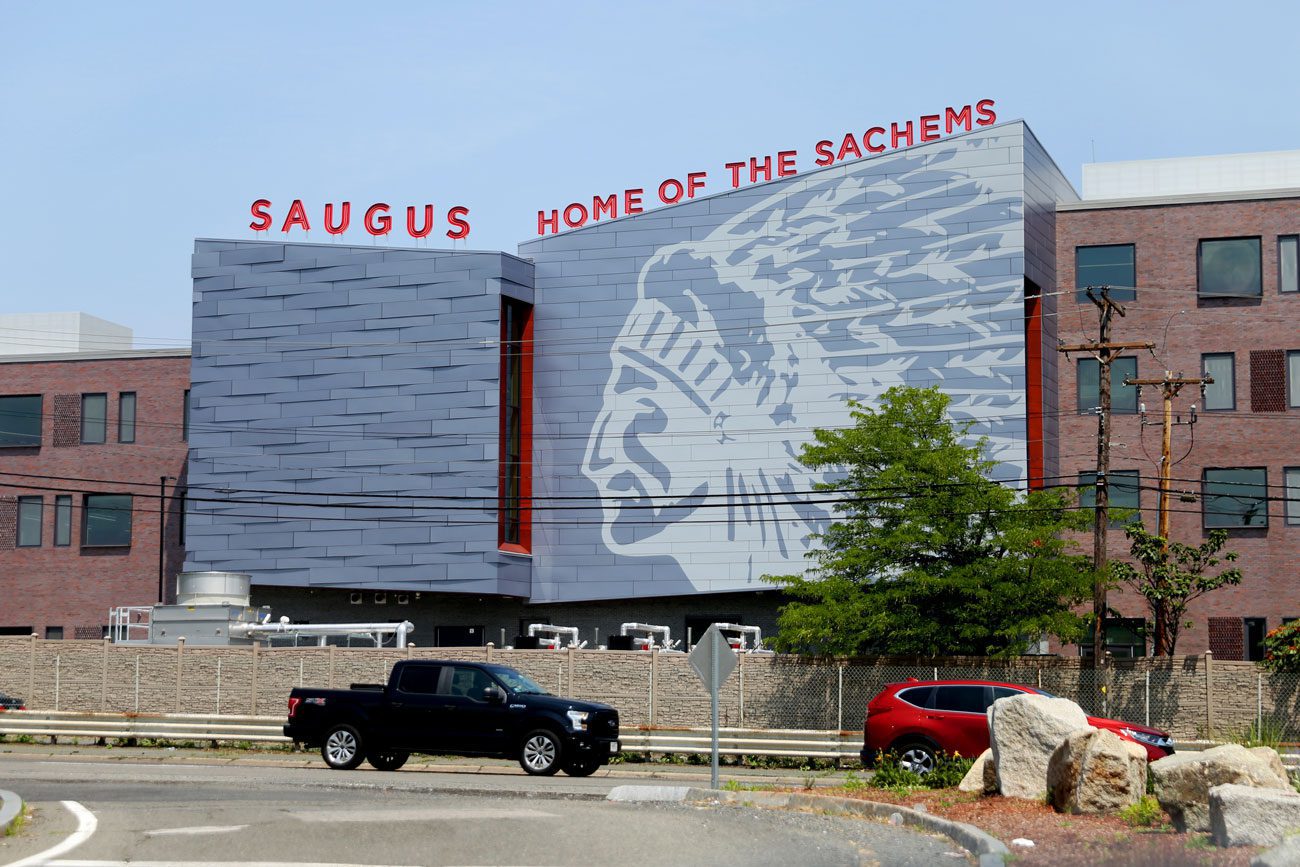
 press-releases
press-releases 
BOSTON — The Saugus Sachem’s days could be numbered.
Bills filed by state Rep. Brandy Fluker Oakley, a Mattapan Democrat, and state Sen. Joanne Comerford, a Northampton Democrat, would prohibit public schools in Massachusetts from using “an athletic team name, logo, or mascot which names, refers to, represents, or is associated with Native Americans.” In Saugus, that means the iconic Sachem would have to be replaced by something else.
The legislation specifically empowers the Board of Elementary and Secondary Education to “promulgate regulations” ensuring no school uses a Native American mascot and set a date by which any school with a mascot violating the law would have to implement a new one. The bill does lay out an exemption for a Native American tribe, as identified by the Commission on Indian Affairs, to use a Native-related name or logo for a sports team comprised of tribe members. A tribe could also give explicit permission to a school to use their particular tribe name.
Schools would be allowed to continue using uniforms or other materials bearing the prohibited name and mascot if they were purchased prior to the date set by the board and if the school selects a new name, mascot, and logo. To do so, they would have to refrain from buying or acquiring “for the purpose of distribution or sale” to students or employees any materials bearing the banned logo, including uniforms, newspapers, yearbooks, programs, and others that would bear the name. Schools must also refrain from purchasing a marquee, sign, or other new or replacement fixture that bears the prohibited name.
In addition, schools would have to replace any facility that bears the prohibited name, logo, or mascot “no later than the next time the associated part of the facility is replaced in the normal course of maintenance.” In Saugus, that would mean replacing — or covering up — the Sachem printed on the outer wall of the middle/high school complex and much of the imagery inside the new gymnasium.
“The discontinuation of Native American mascots not only prevents the psychological and social harms that result from negative stereotyping, it also sends a message to students of all backgrounds that public schools in the Commonwealth are inclusive institutions where they are welcomed and respected,” said Fluker Oakley in a statement. “This legislation would ensure that public schools, under the board of elementary and secondary education, protect students by removing Native American mascots, as well as those that denigrate any racial, ethnic, gender or religious group.”
The bills are before the Joint Committee on Education, which will have to deliver a favorable report to the rest of the legislature for the legislation to move forward. Talk of banning Native American mascots in Massachusetts is not new — a version of the legislation was first filed in 2017. But, the movement has gained steam both in the state and nationwide in recent years, perhaps most notably seeing the rebranding of the Washington Redskins to the Washington Football Team and later Washington Commanders.
Unsurprisingly, many Saugonians — including elected officials — were critical of the bill.
School Committee Vice Chairman Tom Whittredge said, “I wish our lawmakers and elected officials would spend the same amount of time making sure our public schools are properly funded.”
Former School Committee member Dennis Gould, among the most ardent supporters of the town’s sports programs, said he believed Saugus should keep the Sachem forever.
“Sachem meant honor, not negative or anything like that,” he said. “It’s tradition.”
Board of Selectmen Chairwoman Debra Panetta said residents take pride in being called Sachems and treat the Sachem name with “honor and respect.”
“Honoring the Native Americans is a better way to acknowledge past injustices, rather than not acknowledging they existed,” she wrote. “I am proud of our Sachem name.”
Panetta’s fellow selectmen agreed.
Corinne Riley noted the historical significance of the Sachem to Saugus, and the fact that its reach extends well beyond simply sports teams — it is embedded in the town seal.
The Sachem, she said, is more than just a symbol.
“The homage from Saugus is genuine, and the Sachem should be preserved,” Riley said.
The board’s vice chair, Jeff Cicolini, went even further, calling the legislation “ridiculous and unimaginable.”
”It will be a real shame to rip Saugus of its storied history and the pride associated with wearing the Sachem head,” he said. “History cannot be erased, nor should it be. Instead, we should appreciate and celebrate how far we have come as a society over the years.”
A former student-athlete himself, Cicolini said donning the Sachem was an honor.
“Saugus having a Sachem head as our mascot has nothing to do with any type of racism or ill will,” he said. “It has always been a symbol of our proud history.”
24World Media does not take any responsibility of the information you see on this page. The content this page contains is from independent third-party content provider. If you have any concerns regarding the content, please free to write us here: contact@24worldmedia.com